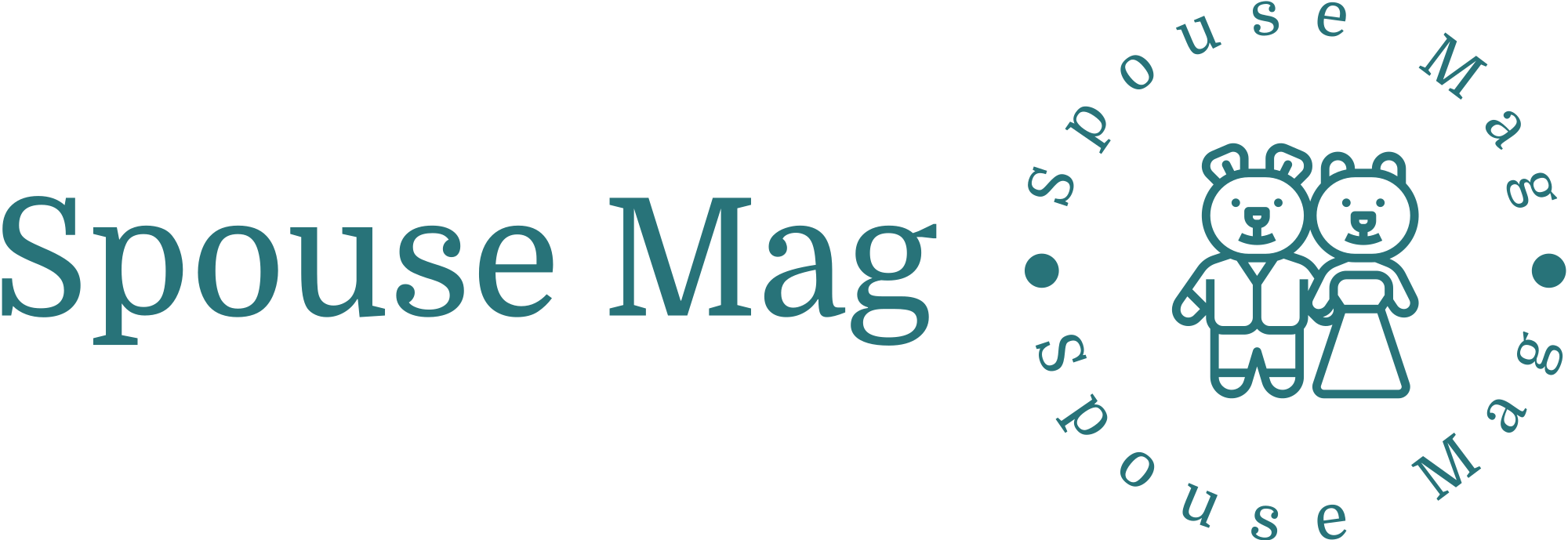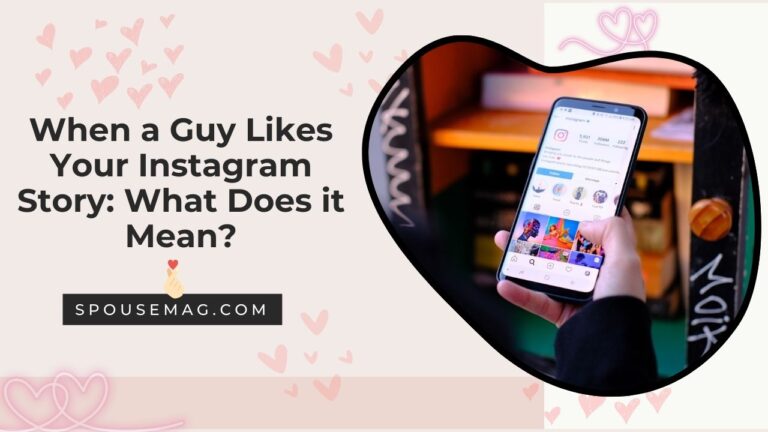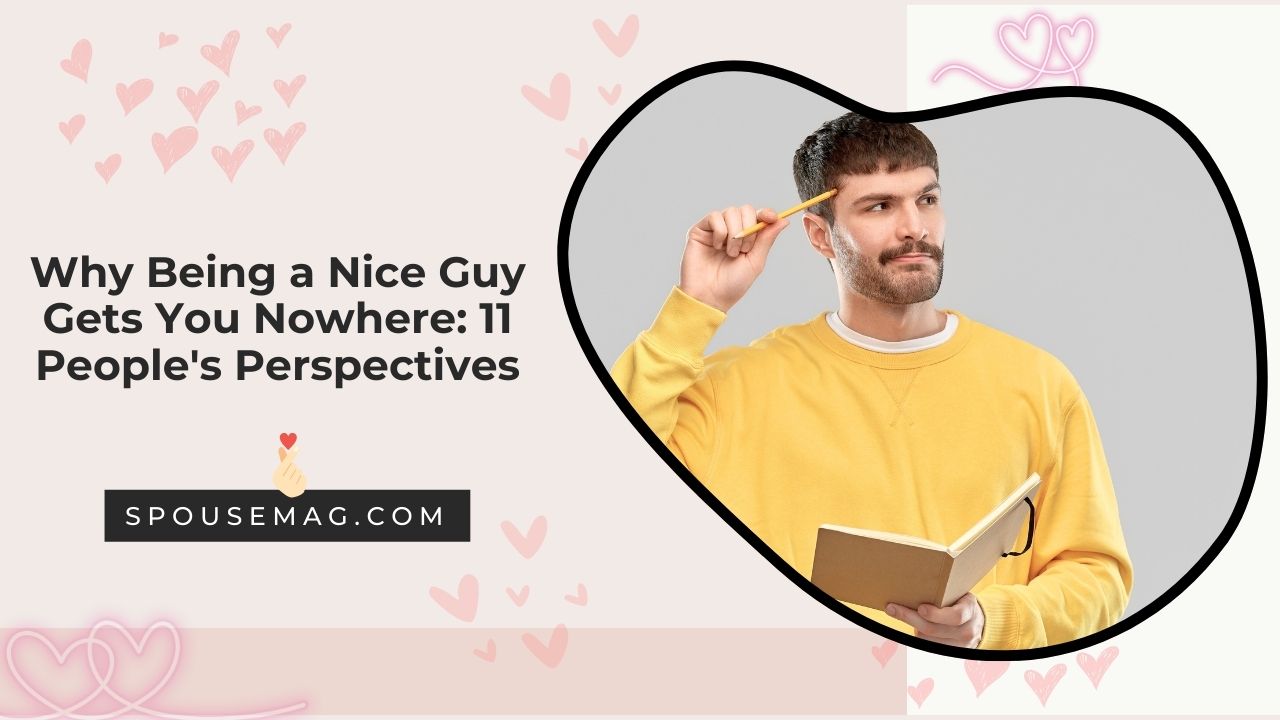
The “nice guy” stereotype is familiar to many men. It refers to someone who is overly agreeable, always willing to please, and expects something in return for his niceness.
This stereotype often leads to frustration and confusion, especially in relationships. Many “nice guys” wonder why their behavior doesn’t yield the desired results.
This article explores why being a “nice guy” can be counterproductive and offers actionable advice for building healthy, balanced relationships.
Key Takeaways
- Being a “nice guy” can be counterproductive in relationships due to a lack of boundaries, difficulty expressing needs, and an inauthentic persona.
- Setting healthy boundaries and prioritizing self-respect are essential for building balanced relationships.
- Developing emotional intelligence and assertive communication can lead to deeper connections and more meaningful relationships.
- Genuine interest and attraction beyond physical appearance are crucial for a healthy partnership.
- Being kind and respectful is important, but it’s only one part of a healthy relationship.
- Balancing kindness with self-respect and assertiveness leads to more satisfying and respectful relationships.
Who is a “Nice Guy”?
A “nice guy” is typically characterized by:
- Overly Agreeable: Always saying yes to everything, even when it’s inconvenient.
- People-Pleasing: Going out of their way to make others happy, often at their own expense.
- Expecting Reciprocation: Believing that their kindness should be rewarded, especially in the context of dating and relationships.
Real-Life Anecdotes: The Human Experience
1. Rowan, a graphic designer, shares his frustration about always being the nice guy. “I’ve always treated women with respect and kindness, but it feels like I’m constantly overlooked. They say they want a nice guy, but they end up with someone else. It’s disheartening,” he confides.
Rowan’s experiences have made him question the value of being kind in relationships. “Sometimes it feels like being nice is a ticket to the friend zone,” he laments.
2. Teddy, a software engineer, echoes similar sentiments. “Being nice seems to get you nowhere,” he says. Despite his efforts to be considerate and caring, Teddy finds himself repeatedly friend-zoned.
“Women tell me I’m a great guy, but they always choose someone else. It’s like being nice makes me less appealing,” he muses. Teddy’s experiences have led him to believe that niceness is often mistaken for weakness. “It’s frustrating, but I’ve learned to be more assertive,” he concludes.
Why Being a Nice Guy Gets You Nowhere: 11 People’s Perspectives
I interviewed several people about why being nice gets you nowhere. Here’s what these 11 people told us:
1. Sarah, 29, Teacher, Los Angeles
Sarah thinks it is more about self-esteem. “Being overly a nice guy means you have sacrificed your self-esteem. In today’s world, no one cares about you despite the efforts you made for them.”
Sarah leaned back and said, “When a man is too nice, he must have faced some embarrassing moments from the people who are arrogant and rude.”
Read More:
- What Does it Mean When a Guy Remembers Details About You?
- When a Guy is Mean to You for No Reason: How to React
2. Jake, 34, Software Developer, San Francisco
Jake believes societal norms play a significant role. “We often grow up with the idea that being nice means being passive and agreeable, which isn’t always appealing.”
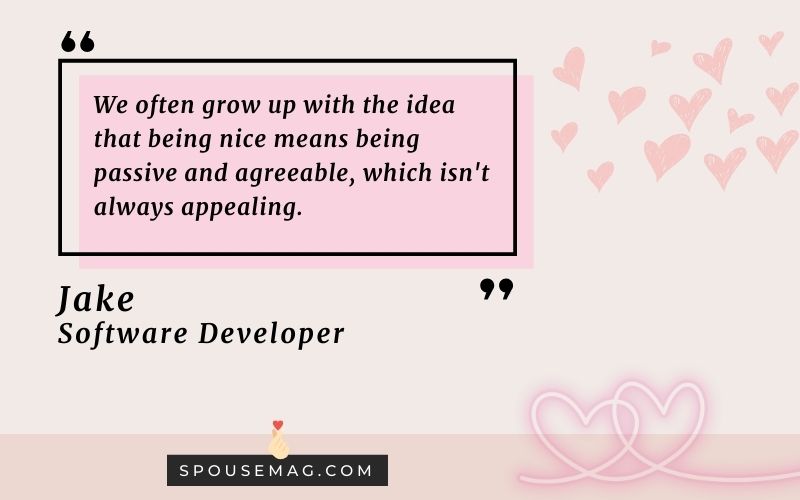
He added, “In dating, people are drawn to confidence and decisiveness. A nice guy comes off as unsure or hesitant, which turns people off.”
3. Emily, 26, Nurse, Chicago
Emily thinks it’s about balance. “Being too nice makes someone seem uninteresting or lacking in ambition. It’s about showing strength and kindness together.”
She explained, “People want someone who stands up for themselves and also shows compassion. It’s a tricky balance that not all nice guys manage to find.”
4. Mark, 45, Lawyer, New York
Mark attributes it to societal expectations. “Men are often expected to be assertive and dominant. A nice guy doesn’t fit into that stereotype and is perceived as weak.”
He further commented, “It’s a sad reality that society values certain traits over others, and niceness doesn’t always come across as a strong trait.”
5. Laura, 32, Marketing Manager, Miami
Laura feels that niceness can be misinterpreted. “Being nice sometimes reads as being insincere or having ulterior motives, especially if the person is overly nice.”
She added, “Genuine kindness is rare, and people can be skeptical. They wonder what’s the catch if someone is too nice all the time.”
6. Chris, 28, Personal Trainer, Denver
Chris believes attraction is about mystery. “Nice guys often lay all their cards on the table, leaving little to the imagination. People are attracted to a bit of mystery.”
He continued, “It’s not about playing games but keeping a sense of intrigue. Being overly nice removes that element.”
7. Jessica, 37, Chef, Austin
Jessica thinks respect is key. “A nice guy sometimes becomes overly accommodating, losing respect in the process. It’s important to maintain self-respect.”
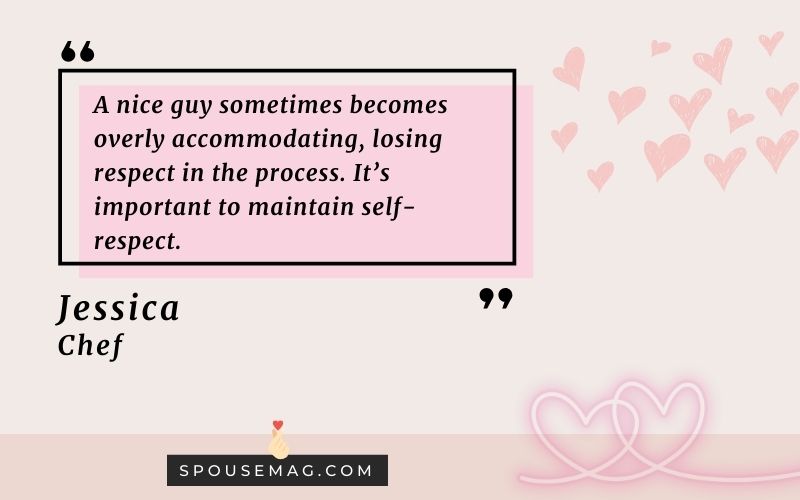
She said, “Being nice should not mean compromising one’s values or opinions. Respect for oneself often garners respect from others.”
8. Ryan, 30, Photographer, Seattle
Ryan believes it’s about excitement. “Nice guys come across as too predictable or boring. People often seek excitement and adventure in a partner.”
He added, “Predictability kills attraction. Being nice should not mean losing the sense of spontaneity that keeps relationships interesting.”
9. Megan, 24, Student, Boston
Megan thinks the media influences perception. “Movies and TV often portray the bad boy as the exciting choice. Nice guys get a bad rap because they don’t fit this mold.”
She elaborated, “These portrayals impact real-life dating dynamics. Nice guys are seen as less appealing due to these media-driven stereotypes.”
10. Brian, 42, Entrepreneur, Dallas
Brian feels that confidence is crucial. “A nice guy lacks the confidence that is often seen as attractive. Confidence shows in actions and decisions.”
He stated, “It’s not about arrogance but believing in oneself. Nice guys need to pair their kindness with a confident demeanor.”
11. Amanda, 36, Graphic Designer, Atlanta
Amanda thinks communication is essential. “Nice guys sometimes fail to communicate their needs and desires effectively, leading to misunderstandings.”
She explained, “Being nice should not mean being a pushover. Clear and assertive communication is vital for any relationship to thrive.”
Why Being a Nice Guy is Unattractive: The Real Reasons
There are various reasons for this behavior. Let’s see some of them:
1. Lack of Boundaries and Self-Respect
Nice guys often struggle with setting boundaries. They say yes to everything to avoid conflict and be liked. However, this leads to a lack of self-respect.
When you don’t respect your own needs and limits, others are less likely to respect you. This behavior makes nice guys seem desperate or lacking in confidence.
2. Difficulty Expressing Needs and Desires
Nice guys often suppress their own needs and desires to avoid appearing demanding or selfish. This leads to frustration and resentment over time.
Healthy relationships require open communication about what both partners want and need.
3. Inauthentic Persona
By constantly trying to please others, nice guys often create an inauthentic persona. They hide their true selves, hoping to be liked for their agreeable nature.
This leads to superficial relationships where the other person never gets to know the real you.
From “Nice Guy” to Healthy Partner
There are certain things to consider for not only being nice but also being a healthy partner:
Importance of Self-Respect and Healthy Boundaries
Self-respect and boundaries are crucial in any relationship. They show that you value yourself and expect others to do the same.
Start by saying no to things that don’t align with your values or priorities. This doesn’t mean being rude or dismissive, but rather being clear about your limits.
Table: Examples of Healthy Boundaries
| Scenario | Nice Guy Response | Healthy Partner Response |
|---|---|---|
| The Partner asks for a favor | Says yes, even if it’s inconvenient | Politely declines if it’s inconvenient |
| Friend asks for money | Gives it, even if it causes financial strain | Explains financial boundaries and declines if necessary |
| Overcommitted schedule | Agrees to more commitments, leading to burnout | Prioritizes tasks and says no to additional commitments |
Developing Emotional Intelligence
Emotional intelligence involves understanding and expressing your emotions healthily. This includes recognizing your feelings, understanding how they affect your behavior, and communicating them effectively.
High emotional intelligence helps in building deeper, more meaningful connections.
- Understanding Emotions: Take time to reflect on what you feel and why. Journaling is a helpful tool.
- Expressing Emotions: Practice articulating your feelings in a calm and non-confrontational way. Use “I” statements, such as “I feel upset when…”
Why does it always seem that being nice gets you nowhere but being an absolute tool gets you everything in life. Fed up of being told I am nice and a great person but always being the person that gets ignored and no appreciation for helping #niceguysfinishlast pic.twitter.com/ZPKndxv2yn
— William Alexander (@williamalex1892) April 2, 2018
Communicating Needs and Wants Assertively
Assertive communication is key to healthy relationships. It involves expressing your needs and wants clearly and respectfully. Avoid passive or aggressive communication styles.
Example: Assertive Communication
- Passive: “It’s okay if we don’t go out tonight, even though I really wanted to.”
- Aggressive: “We must go out tonight because I said so!”
- Assertive: “I was really looking forward to going out tonight. Can we make it happen?”
Importance of Genuine Interest and Attraction
Being genuinely interested in your partner as a person, not just the idea of a relationship is essential. Show curiosity about their thoughts, feelings, and experiences.
Attraction goes beyond physical appearance; it includes emotional and intellectual connection.
Conclusion
Being kind and respectful is always attractive, but it’s only one part of a healthy relationship. Building self-respect, setting healthy boundaries, and developing emotional intelligence are crucial.
Communicate your needs assertively and focus on genuine connections. The right person will appreciate you for who you are, not just for what you can do for them.
FAQs
Can a “nice guy” change his behavior and still be liked?
Absolutely. It’s not about becoming a different person but about setting boundaries and respecting yourself. This change can make you more attractive and lead to healthier relationships.
How can a “nice guy” start setting boundaries?
Start small. Practice saying no to minor requests that inconvenience you. Gradually, you can set more significant boundaries as you become more comfortable.
Is being nice always a bad thing in relationships?
Being nice isn’t bad. However, it’s essential to balance kindness with self-respect and assertiveness. Healthy relationships are built on mutual respect and understanding.

As a married wife, founder, and editor of SpouseMag.com – these guides are based on my own personal experiences, observations, research and insights. I am transparent about being inspired by the life and work of the two greatest experts in the relationship space – Dr. John and Julia Gottman, and Harville and Helen. They two are some of the strongest couples, researchers, authors, and counselors when it comes to marriage and relationships. My advice and guides are based on my insights and research, and they are not an alternative to professional advice.
